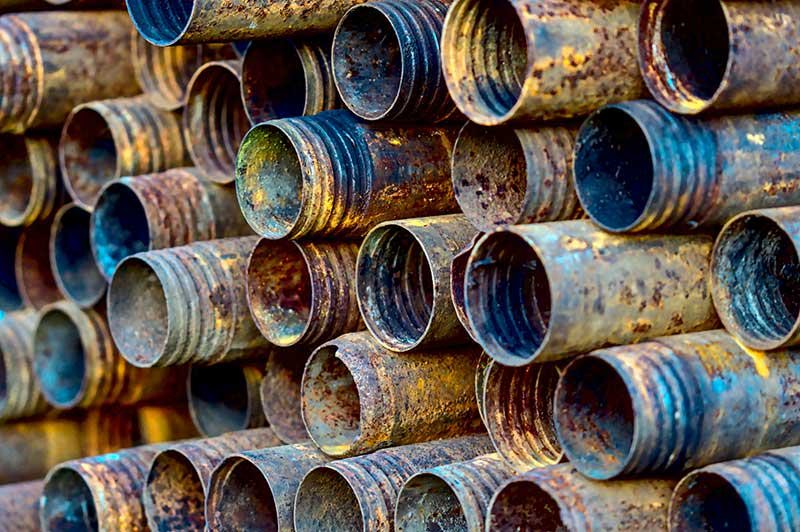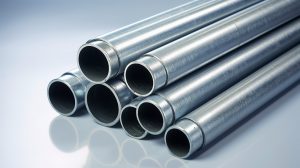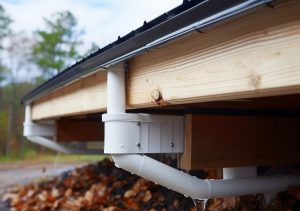While most pipe manufacturers take into account the pressure their products will need to withstand and most projects are carefully designed to avoid breakage and leaks; there’s another potential problem we can’t overlook. And that’s pipe corrosion.
So what is pipe corrosion and how can we best avoid it? Corrosion is the term we use to refer to the oxidization process of certain materials. Oxidization is a natural reaction that causes materials to lose electrons and eventually result in an electromagnetic breakdown, which is best identified with that rusty color. In short, this means that the causes of pipe corrosion are natural and are part of the regular processes of the world.
That said just because corrosion is a natural phenomenon doesn’t mean we can’t prepare for it. Different materials are more or less resistant to corrosion, and special treatments to protect them do exist as well. So today we’ll go over some of the key ways pipes are protected from corrosion in the industry, so you can rest assured your future projects will be completely safe.
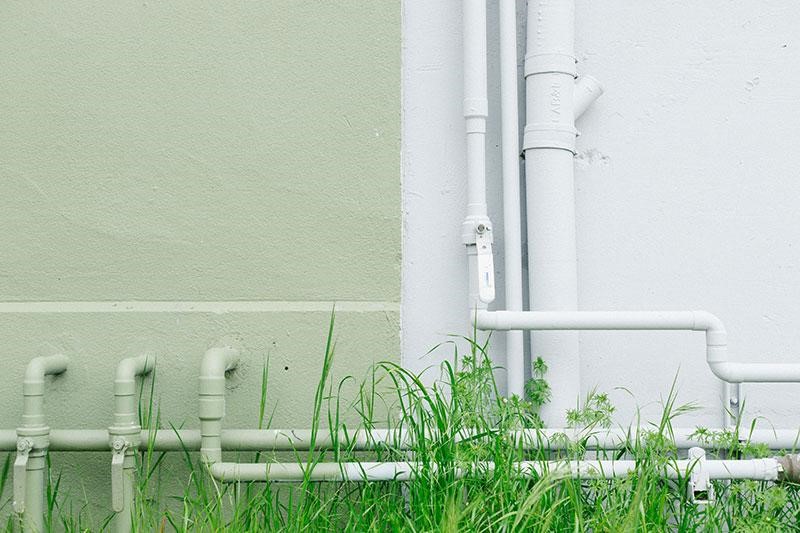
Different Type of Pipes Corrosion
While corrosion at its core almost always responds to the natural process of oxidization, this doesn’t mean the trigger is always the same. Understanding what caused corrosion is vital for its treatment and this is why we divide the different types of pipe corrosion based on its causes:
Piping Failures
Piping failures are interesting because they can be both a cause and symptom of corrosion depending on the case. A single pinhole leak can cause water to slowly drip outside and start corroding the structure. But sometimes that original leak can also be a result of existing corrosion. Check the pipe to assess the case and then handle it as any other leak.
Pipe Repairs
This mainly happens in pipes that haven’t been assessed in a long time. Corrosion spreads across it and even across multiples pipes which demands an instant reparation or risking a complete failure of the piping system.
Pipe Thread Leaks
Since threads are one of the most likely points of leaks and some connections are metal to metal, it should come as no surprise that corrosion is so common in them. Reparation can be a long process but with proper use of epoxy, it can be handled.
Galvanic Induced Failure
This type of corrosion happens when different metals are in contact with each other. This accelerates the natural pace of oxidization and is highly dangerous for the integrity of the system.
Weathering Damage
Damage caused by snow, rain, and other atmospheric conditions can weaken the structure and accelerate corrosion. Maintenance is key to avoid its spread.
Corrosion Under Insulation
If the insulation of a pipe is insufficient this can cause the fluid it’s carrying to corrode the pipe, hence the importance of Quality Control.
Microbiological Corrosion
also called Microbiological Influenced Corrosion (MIC) Certain microbiological agents can cause the accelerated corrosion of entire piping systems in a matter of years. If detected it’s vital to clean the entire system as soon as possible.
Seamed Pipe Failure
A lacking seam can be all the trigger pipes need to corrode. An incomplete seal can cause rust to accumulate in the seam and eventually cause the collapse of the union.
Copper Pipe Corrosion
While copper is resistant to corrosion it is not immune to it, and certain variations in pH, voltage, or improper grounding can lead a copper pipe to get corroded.
How to Eliminate Pipe Corrosion in Industrial Processing Application?
The key to eliminating corrosion in industrial applications is as straightforward as it gets. As we mentioned above corrosion is caused by the natural oxidization of certain materials as a reaction to the fluid they are carrying. So the solution is to rely on materials that can’t corrode or at least are highly resistant to it.
When it comes to industrial piping the material that offers the best balance between corrosion resistance and overall durability is plastic. By replacing metal systems with plastic pipes like PVC and PE, you ensure that the system won’t corrode due to irregularities in the fluid it’s carrying, and you still get a highly durable piping system that will withstand the passing of time. It’s the best of both worlds in a single package.
Are Plastic Pipes Corrosion Resistant?
Plastic pipes have a key advantage over traditional metal systems, and that is their lack of reactivity. Water, air, and even electricity can react with metals to accelerate its oxidization process, no matter how well insulated the material is there will always be a risk. And since oxidization is synonymous with corrosion this means that no metal pipe will ever be 100% safe from the risk of corrosion.
On the other hand, plastic pipes does not react to water or air. When using plastics pipes like PVC, PE or PPR, the risk of corrosion is completely set aside, and the only remaining concern is the natural durability of the material. This is barely a concern as those kinds of pipes have the lowest failure rate of all possible materials. So not only are they corrosion-resistant, but this makes it the longest-lasting pipe alternative in the market.
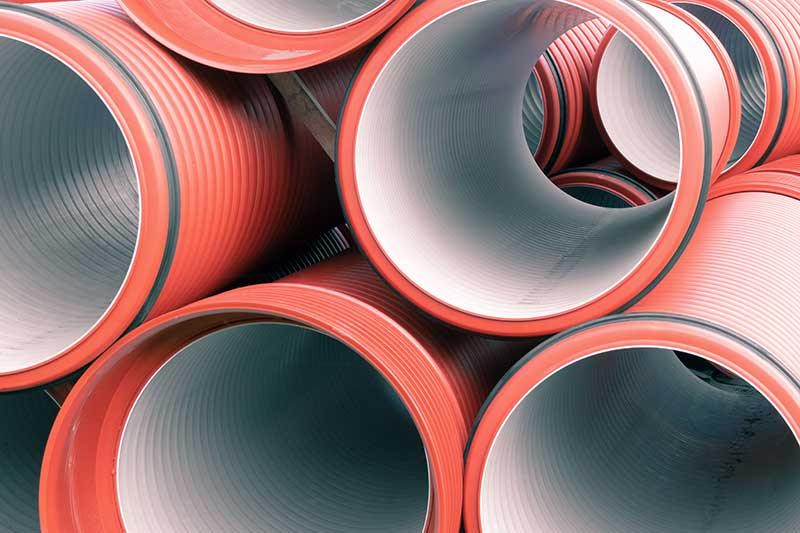
Benefits of Using Plastic Pipes to Prevent Corrosion
The main benefit of relying on plastic pipes is the decreased importance of maintenance and the knowledge that corrosion is no longer an issue. Think back to all the types of corrosion in pipes we talked about. There’s no shortage of possible causes for corrosion and if you don’t make sure to check on the system regularly it might collapse altogether.
On the other hand when it comes to plastic pipes the amount of check-ups is reduced. Because even if a leak does happen it won’t risk corroding the entire structure. This means the system as a whole is less demanding after installation, and on average will last longer than any metal alternatives.
Let's Sum it Up
In short, corrosion is a natural reaction most metals suffer when they are in contact with water, air, and even other metals. While specialized treatment does exist there’s no way to ensure a metal pipe will be 100% resistant to corrosion. On the other hand, plastic pipes are both durable and lack the chemical makeup that makes corrosion happen. Which means they are safer overall for your projects.
However, as we said above quality control is key. Plastic might be corrosion resistant all on its own, but the durability of PVC pipes still lies on the company behind them. With that in mind, we’d like to introduce you to LESSO’s selection of PVC pipes. LESSO is a company with over 30 years of experience and reputation behind them, and their PVC pipe selection is second to none. So if you ever find yourself needing PVC pipes for a project, rest assured you can leave it to LESSO.
Recommend Reading
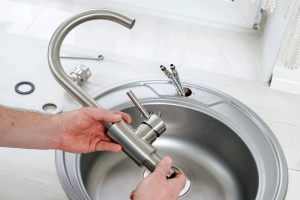
How to Install a Kitchen Faucet
Table of Contents Swapping out or upgrading a dated faucet with an attractive, durable brass faucet that fits your sink, coordinates with your decor, and
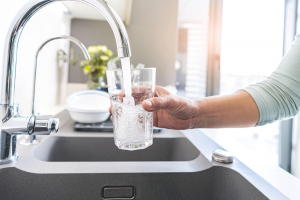
How to Choose the Best Kitchen Sink Faucets
Table of Contents The sink and faucet are often considered among the focal points of any kitchen or bathroom. Therefore, it’s important that you choose


